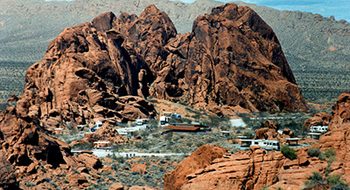By Bob Difley
“ . . . alternative energy is behaving more like high-tech as opposed to old school energy” says Riggs Eckelberry, CEO of OriginOil. “Old school energy seeks to dominate massively, with vertical integration and specialized utilities. With new energy we are looking at a networked approach and we need rapid adoption for this to succeed . . . “
Eckelberry’s message, presented recently to the United Nations, and summed up in the mission of OriginOil, is to operate as a pure technology company, with no intention of producing a finished product or refining at an industrial scale. Their aim is to help other companies through the use of their breakthrough technology, rather than competing with other companies for market share. Eckelberry believes that this networking configuration will prove to be the key to bringing their specialty, fuel produced from algae (through the Single-Step Extraction™ process that reduces complex harvesting processes to a single, cost-effective step), quickly to the marketplace.
In an interview with the New Energy World Network, Eckelberry says that the industry needs to move away from crop and terrestrial products, which he believes are not sustainable, toward algae , which can be produced on an industrial scale. Though the European Union is ahead of the US in the development and distribution of plant-based biofuels, we could get a jump ahead by moving quickly toward algae.
With the US moving toward a cap-and-trade system and other incentives to develop alternative fuels, this provides much needed help for companies like OriginOil. Many, like OriginOil, have been able to move beyond venture capitalization to private investors and company/partner support, ultimately to a licensing and royalties model as the market becomes fully developed.
As you would expect, Eckelberry feels that the future of algae is very bright.
“Intrinsically, algae has the capabilities, because petroleum comes from algae,” he says. “We now have a technology that works at the small scale and we need to develop towards the large scale. There is no doubt that there will be issues to be remedied, but algae is the only solution that can intrinsically develop competitiveness against oil.”







Pingback: ניסור בטון
GMAs
TOO EXPENSIVE TO PRODUCE. as microsofts NT… nice try…
Where is the nuc power that they promassed… to get the powerplants off the gas and quit burning the O2… I see no progress here… but rather the UK now is pushing to go that direction… as usual our leadership is just half ass back ward…
I have to wonder where these smart people in washington are… as we see no leadership from that area to help get the country back going again…
Like this application to sub oil…its just another waist of time and more government money (your tax dollars) waisted on snake oil sales
G Shea
We can wait for these and pay for mid east oil, or do as T Boone Pickens suggests, and many bus and commercial fleets are and have been doing for years, namely use CNG. We have 2000 trillion available here in the US today at less than one dollar! I have seen cars as well as larger trucks using this fuel which could get us into the next century, plenty of time for these fuels that need time to be developed into a usable fuel. Even the greeners like CNG as it is way cleaner than gas or diesel. It isn’t a perfect fuel, but it could displace our need for mid east oil and bring down pollution and costs in a time when our budgets need it. Doubt it will happen as Big Oil has lobbied our futures away for years. I doubt the new “free thinking” leaders will do anything usefull, just Cap and Trade (raise taxes). I hope I am wrong.
Don
I’ve given this alternative some thought myself. Algae needs nutrients in order to flourish. Our sewage treatment plants are the ideal source for these nutrients.
Think of this – we could supplement these nutrients by everyone using their garbage disposals to grind-up their organic waste instead of putting it in the trash can and hauling it to a landfill. This would help reduce the amount of material we’re putting in landfills and increase the production of algae for alternative energy production.
A lot of the solid waste products could be separated into combustibles and processed for use as a fuel supplement for our electric power plants further reducing the amount of oil we import and the amount of solid waste we attempt to bury in our landfills.
My goal is to reduce our dependence on foreign oil and increase the availability of domestically produced alternative fuels while at the same time reducing the amount of waste we’re trying to dispose of.
Using our existing sewage collection systems as the delivery transport for nutrients to treatment plants where bio-fuels could be recovered and waste water cleaned-up in the process. Curbside trash collection would be reduced with this plan – another advantage.
I would hope the production of bio-fuels from algae would be done by many small enterprises as opposed the conglomerates we deal with as in big oil. The longer I live, the less advantage I see in “economies of scale” when the big get bigger.
The sooner we see algae proceeded into bio-fuels, the better off we’ll all be.
bob smith
Why not use the inported algae that is growing off shore in california and along the gulf cost and leave corn alone? I know we are going to have to devlope other sorces for fuel I really like to travel and don’t want to go back to covered waggons and two to four horse power. we will over come i know because i feel that we have the greatest minds working on it now and tomorrow is a new day.
Doug Pologe
Companies that specialize in the development of alternative energy sources really do live in a high-risk environment. Many of them are highly dependent on government incentives, which can just as easily be “gone tomorrow” as they are “here today”. Somehow, with the move toward “cap and trade” I expect to be coming across many articles such as this one.